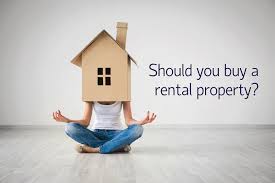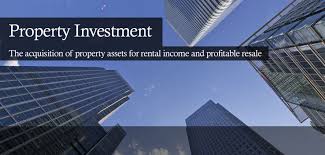Investing in a rental property: The pros and cons
 There are a number of advantages and disadvantages to buying a property and then renting it out. Talk to an accountant, lawyer, mortgage broker or other financial expert about how it may affect your taxes and financial situation. You will need to do some serious research, there's much more to being a landlord than putting up an ad on Craigslist -- it's like taking on a second job. You will need to factor in realistic financial projections, and carefully weigh the pros and cons of your decision.
There are a number of advantages and disadvantages to buying a property and then renting it out. Talk to an accountant, lawyer, mortgage broker or other financial expert about how it may affect your taxes and financial situation. You will need to do some serious research, there's much more to being a landlord than putting up an ad on Craigslist -- it's like taking on a second job. You will need to factor in realistic financial projections, and carefully weigh the pros and cons of your decision.
Here are a few things to consider before purchasing a rental property.
1. Do you have enough saved for the down payment?
Under Canada's new mortgage rules, you must come up with a down payment of at least 20 per cent for a small rental property holding from one to four units. This rule does not apply to borrowers whose principal residence also includes rental units.
2. How much income will the property generate?
You will need to do some research into the neighbourhood.  What does rent typically cost, and what is the vacancy rate in that area? Don't assume that you will always have a tenant -- according to the Canada Mortgage and Housing Corporation (CMHC), the average vacancy rate in Canada's 35 major centres is 2.5 per cent. To be safe, assume a four or five per cent vacancy rate into your financial projections, and don't forget to calculate potential costs, such as repairs and maintenance.
What does rent typically cost, and what is the vacancy rate in that area? Don't assume that you will always have a tenant -- according to the Canada Mortgage and Housing Corporation (CMHC), the average vacancy rate in Canada's 35 major centres is 2.5 per cent. To be safe, assume a four or five per cent vacancy rate into your financial projections, and don't forget to calculate potential costs, such as repairs and maintenance.
3. Can you be a successful landlord?
Being a landlord is a second job. It's not just about finding a tenant and letting the money come in every month. Not only do you have to be available to field emergency calls and keep up with maintenance such as routine fixes, yard work and even shovelling snow, but if you rent to the wrong tenant, you might have even bigger problems to deal with, such as non-payment of rent. Hiring a property manager can help, but that will greatly reduce your monthly profit from the property -- and you never want to be in a negative cash-flow situation.
4. How will deductions affect your profits?
By deducting certain expenses from your income, you can reduce the taxes that you owe. Applicable expenses include mortgage interest, property tax, insurance, property management, maintenance and utility bills. You can also deduct any losses from your rental  property. If your expenses exceed your rental income, you can subtract your losses from any other source of income you have coming in.
property. If your expenses exceed your rental income, you can subtract your losses from any other source of income you have coming in.
Purchasing a rental property can be a great way to diversify your investment portfolio, but it is a big commitment. Being a landlord is time-consuming, and not for people who are interested in an easy, passive income stream.
3 key advantages
1. You pay less tax
You can deduct certain expenses from your income – reducing the taxes you owe. The list includes:
- mortgage interest
- property taxes
- insurance
- maintenance/upgrades
- property management
- utility bills (if you include them in the rent).
2. You may be able to deduct losses for tax purposes
If your expenses exceed your rental income, you may be able to deduct that loss from any other sources of income you have. This could reduce your total tax bill.
 3. You get a regular monthly income
3. You get a regular monthly income
Other kinds of investments may pay out less often or income may be less predictable.
3 key disadvantages
1. You take on the responsibilities and challenges of a landlord
Rental units need repair – sometimes on an emergency basis. Dealing with tenants can be challenging, especially if they don’t pay their rent on time and cash flow is tight. If you hire a property manager to take care of these things for you, their salary is an added cost.
2. It may be difficult and costly to sell the property later
Real estate is not a liquid investment. That means it can take time to sell, depending on market conditions. It can also be costly to sell due to real estate and legal fees.
3. It may be difficult to finance the purchase
You must have a down payment of at least 20% when you buy a second property. You may need a mortgage. And, you will have high monthly expenses to cover when you own a building. Of course, you hope the income you receive from your tenants will cover this.


